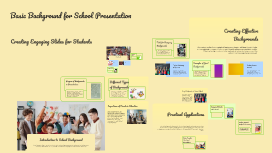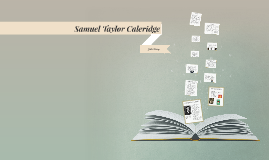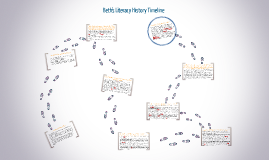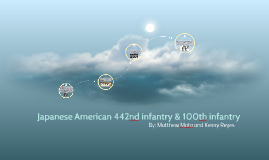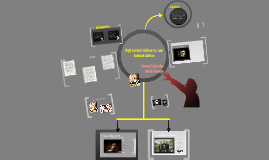Basic Background Information
Transcript: I was born on May 30, 1989 to two extraordinarily loving and supportive parents who fall more and more in love with each other as the days turn into years. I was the third of three children. My nuclear family can be considered an upper middle class who values education and has high expectations for children to grow up and have successful careers and families. I grew up in a place and in a family that provides me with a unique perspective on the impact SES and families can have on literacy development. Every child must become a multiliterate contributor to society, but every child will not be inclinded to pursue the same types of literacies. My literacy experiences are marked by social motivations and I have shown a clear preference for literacies that can be demonstrated and developed kinesthetically or with the use of technology. It is never too late to find the joy of reading. Early Family Background - Proverbs 22:6 "Start children off on the way they should go, and even when they are old they will not turn from it." Early Schooling - Exodus 20:12 "Honor your father and your mother." I attended Bethany Lutheran School in Naperville, IL from preschool through eighth grade. My classmates also came from middle class, supportive families. My mom was the school librarian so she taught me a lot about computers and books, but I still did not enjoy reading. I did, however, develop the desire to grow up and become a teacher like her. My parents always bought us educational toys and computer games such as Reader Rabbit, Math Blaster, and Slam Dunk Typing that helped to develop my digital literacy. Bethany offered experiences such as book fairs, Science fairs, research papers, projects, and musicals. There was also a well-balanced curriculum that followed the Whole Language approach to literacy. I was an above average reader, but I found I enjoyed creating and performing better than reading. I did grow fond of certain series such as Junie B. Jones and Harry Potter during these years. I was socially motivated in school and often got in trouble for talking too much. I tried to resist this habit because I am a people-pleaser and always wanted my teachers to be happy and my parents to be proud. I earned good academic scores, but so did everyone else. Where I really stood out was socially and athletically; my basketball team won the LSA State Tournament and went on to Nationals. I attended Hope College in Holland, MI. The spiritual growth that I encountered when I was at Hope has had a profound impact on my literacy development. In college, I found my Classical Literature class boring, but I thoroughly enjoyed my Environmental Studies and my Physiological Psychology classes. My favorite classes were by far my Special Education methods classes even though they seemed to focus more on identifying student needs rather than meeting them. I still appreciated my functional ability to read and write as I needed to in order to excel in my classes. What changed was that I finally began to read for leisure and I started journaling. When I recall these years, I still associate each class with the friends I had in them and the relationships I developed with my professors and in my field experiences. I continued to be socially, athletically, and spiritually motivated as I was on the basketball team, volunteered in the community, and became a Young Life leader at a local high school. I traveled on several mission trips and rarely missed chapel or the Gathering. I continued to work on my communication skills during the aforementioned activities. I also filled my calendar with countless coffee dates where I delved into deep and transforming conversations with friends and acquaintances. By the time I was a senior, I was inducted as a member of Mortar Board and graduated Summa Cum Laude, but I find that I do not value those accomplishments as much as the lives I was able to positively impact through my volunteer activities. I am currently in the process of transitioning from a primary placement in a self-contained classroom to a co-taught classroom. As I continue throughout my graduate studies, I fully intend on continuing to grow and develop as an educator as I have during my Differentiation and Learning Theory class as well as this one. The positive mentoring relationships that I have developed with the students that I teach and the players that I coach have motivated me to continue to develop my abilities to meet the needs of diverse learners by differentiating content, process, or product in response to individual student readiness, interest, and learning profiles. Like myself, some students may not like reading as much as acting, speaking, and writing which is okay. While my undergraduate years were focused on identifying learners' needs, my graduate studies have helped develop methods and strategies to meet the needs of diverse learners. Many of my students need transition services that will help them become positive contributors to






